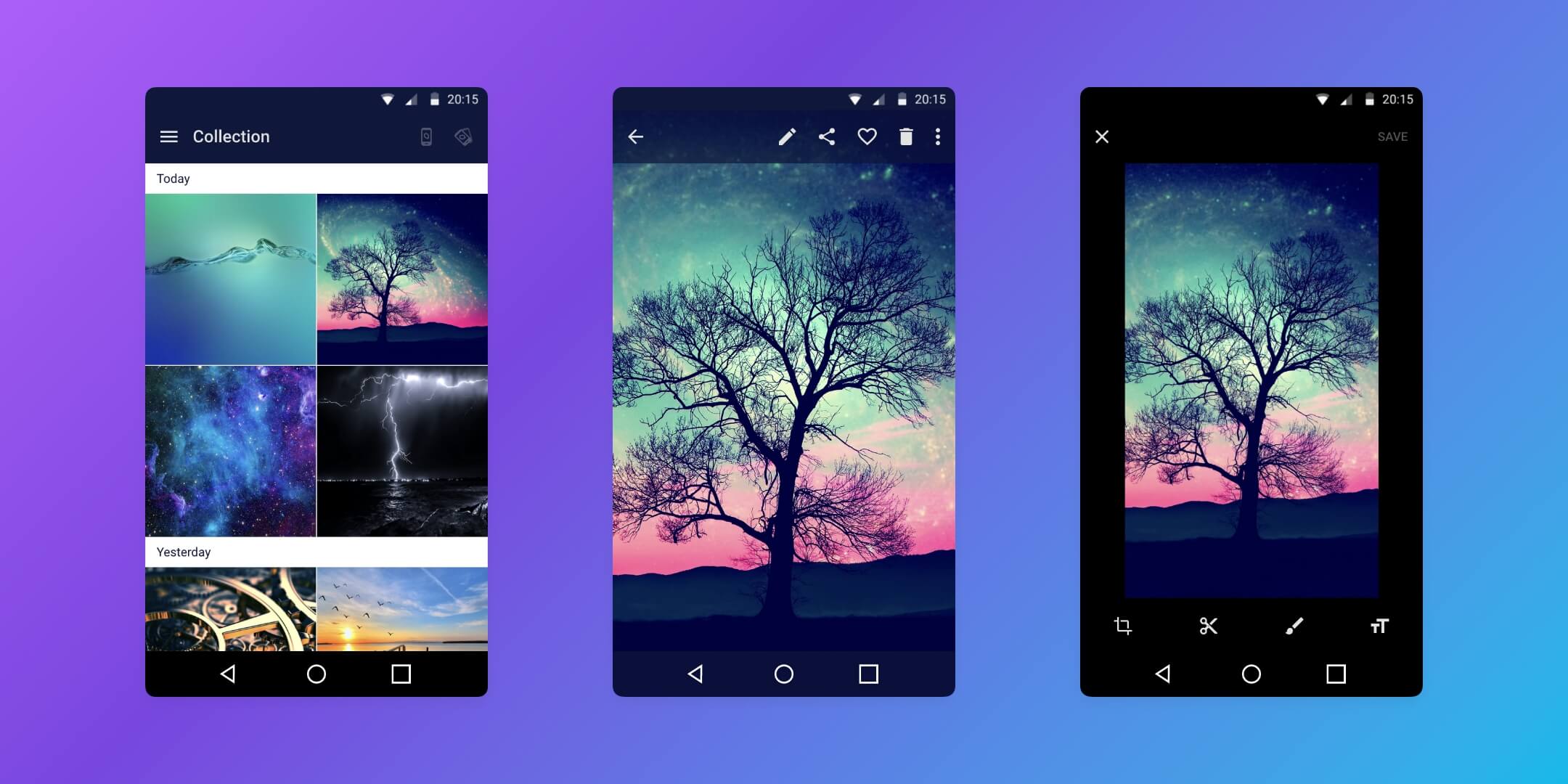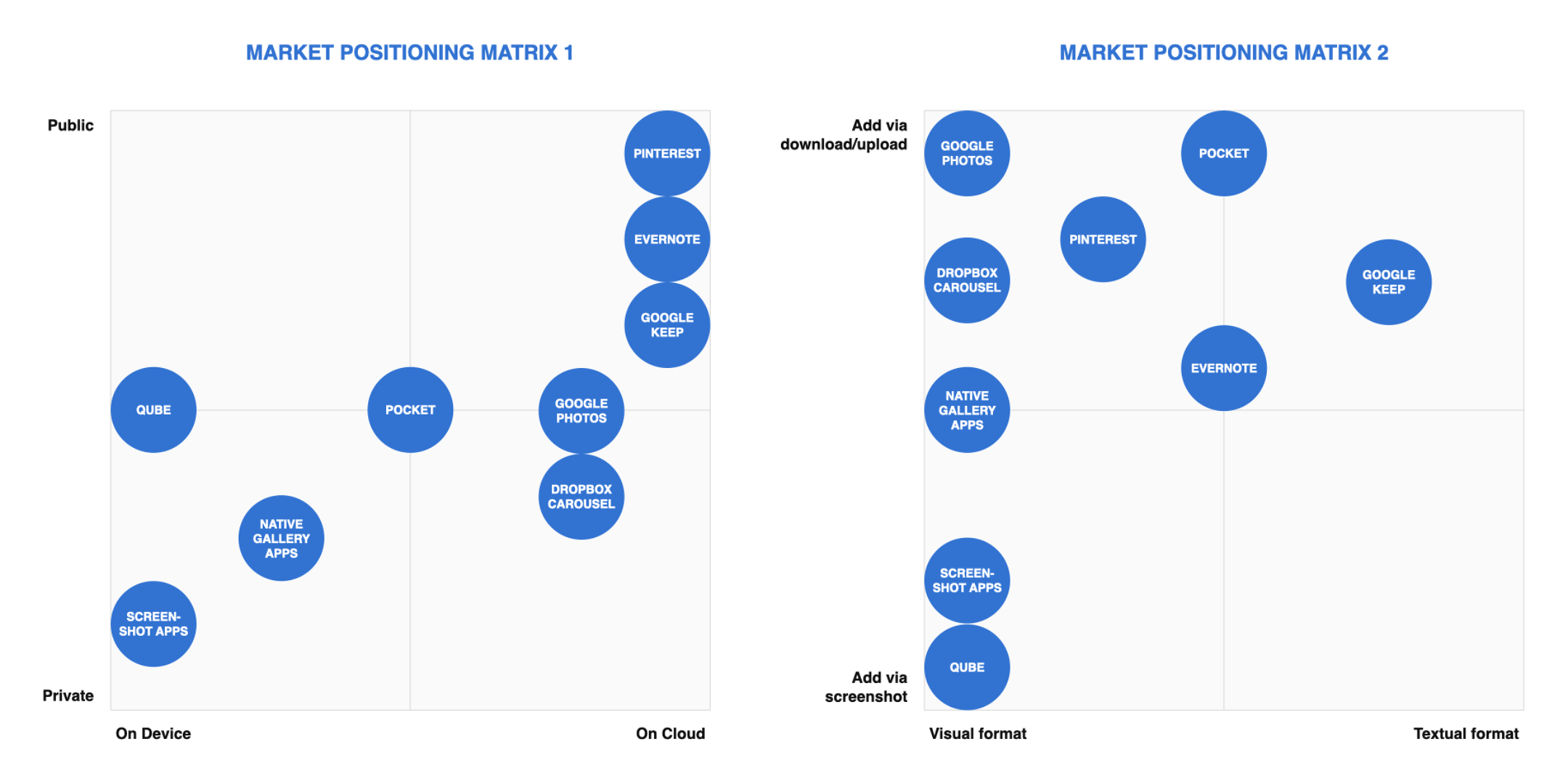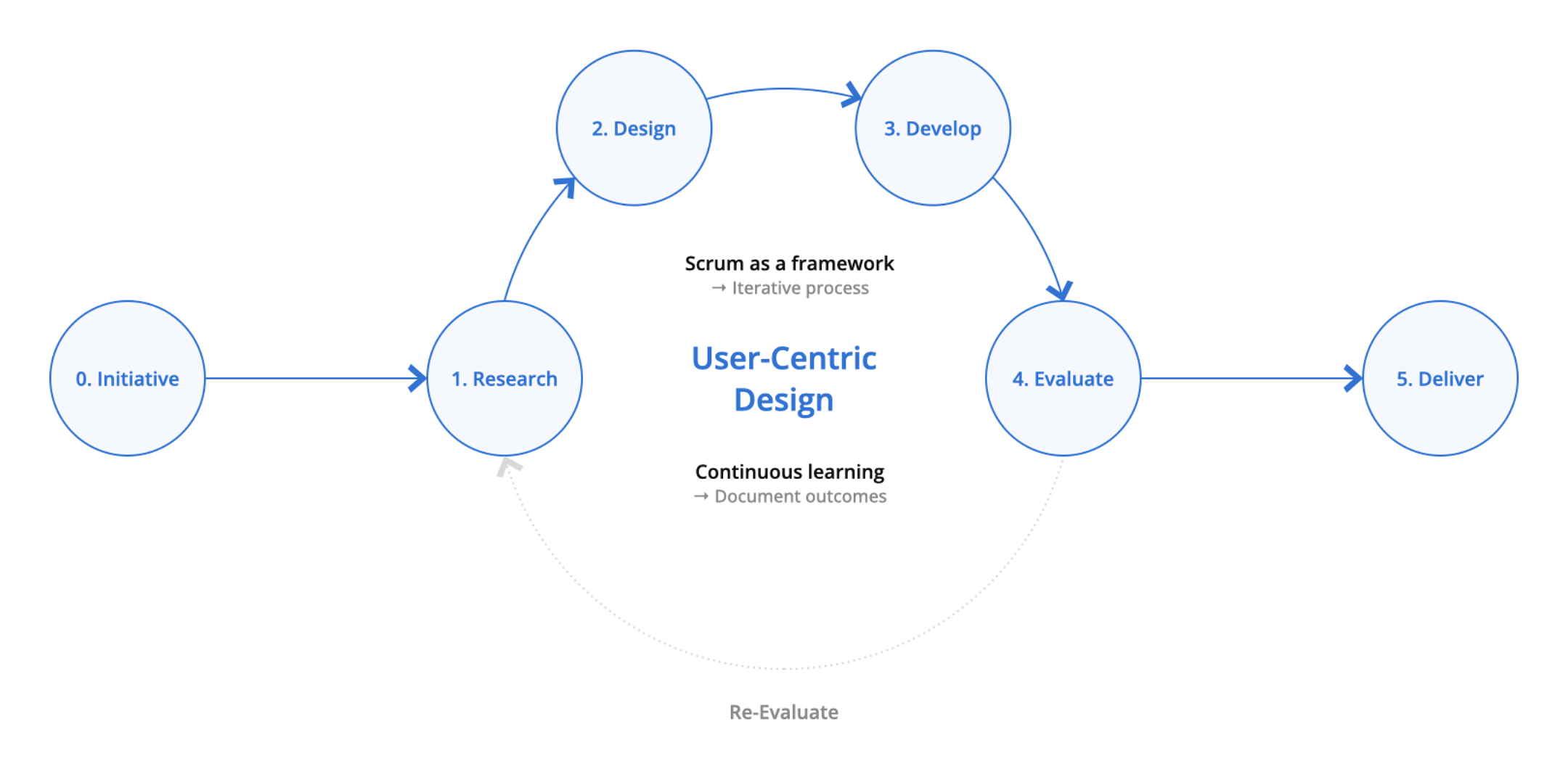Work
Transforming ideas into digital services
Innovating new digital services from start to finish
Norwegian tech company Zedge opened an innovation hub in Helsinki, Finland, and built a small, independent agile team to innovate new digital services and solutions. My role was to serve as the design lead & concept owner of the projects and to create a design-driven process for the team.

Background
Zedge is a Norwegian tech company, best known for its flagship product – Zedge phone personalization app – which has over 660 million downloads and nearly 40 million active users. The innovation hub's operational model was to create and develop new services and solutions to support the main product.
Team Model
We had a small, agile team of five members, including a Technical Team Lead, two Android developers and a UI designer, whom I helped hire. I led the designer and developers towards a shared vision by creating a design-driven process for the team to follow. Additionally, I was responsible for creating the initial concepts and the final UX designs for early ideas, primarily originating from the CEO.
Concept Design
After receiving the initial idea for the Qube screenshots Android app, I created a concept design document to better understand the vision and desired outcome for the service. The concept design defined hypotheses for typical user personas, stories, behaviors, and the sources, flows and scenarios of how and where the app would be used. The document also included a competitor analysis to better understand the competitive landscape.

The competitive field was analyzed and converted into Market Positioning Matrices to visualize open opportunities and highlight crowded areas as competitive disadvantages.
User-Centric Design
The design-driven process created for the team was based on the User-Centric Design (UCD) model, where we used the UserTesting service to test our early concepts and final builds with end users. Another valuable channel for user feedback was the marketplace reviews, which we prioritized to address relevant feedback. In the end, we tackled all the relevant requests made by the users.

I used the User-Centric Design (UCD) model as the foundation for defining the team's design-driven process. In practice, each step from 1 to 5 can form a Scrum loop, with step 3 (Development) often requiring multiple iterations. Later in my career, I updated the process to include an evaluation phase between each step, as evaluation always occurs – whether by users, stakeholders, or decision-makers. Integrating evaluation also makes the process more agile and adaptable to change.
Outcome
When launched to the public, the Qube screenshots Android app had a slow start. However, after tech-savvy users discovered it on the Google Play Store, downloads quickly grew organically to 50 thousand. The app received good reviews (4.6 stars) on the Google Play Store and had almost 90 % user retention among loyal users. This indicates that users were extremely satisfied with the application.
Reflection
My deep understanding of design processes and extensive experience in digital service design and user-centric design methods were crucial to achieving positive results in user ratings and retention. This demonstrates the effectiveness of a systematic, design-driven process in creating innovative digital services and meaningful user experiences. For example, our image editing features such as Magic Crop, similar to what Apple now offers, was implemented years before they did. ▪
Methodologies
Concept & innovation design, digital service design (incl. ux & ui), user centric design and design & project management.